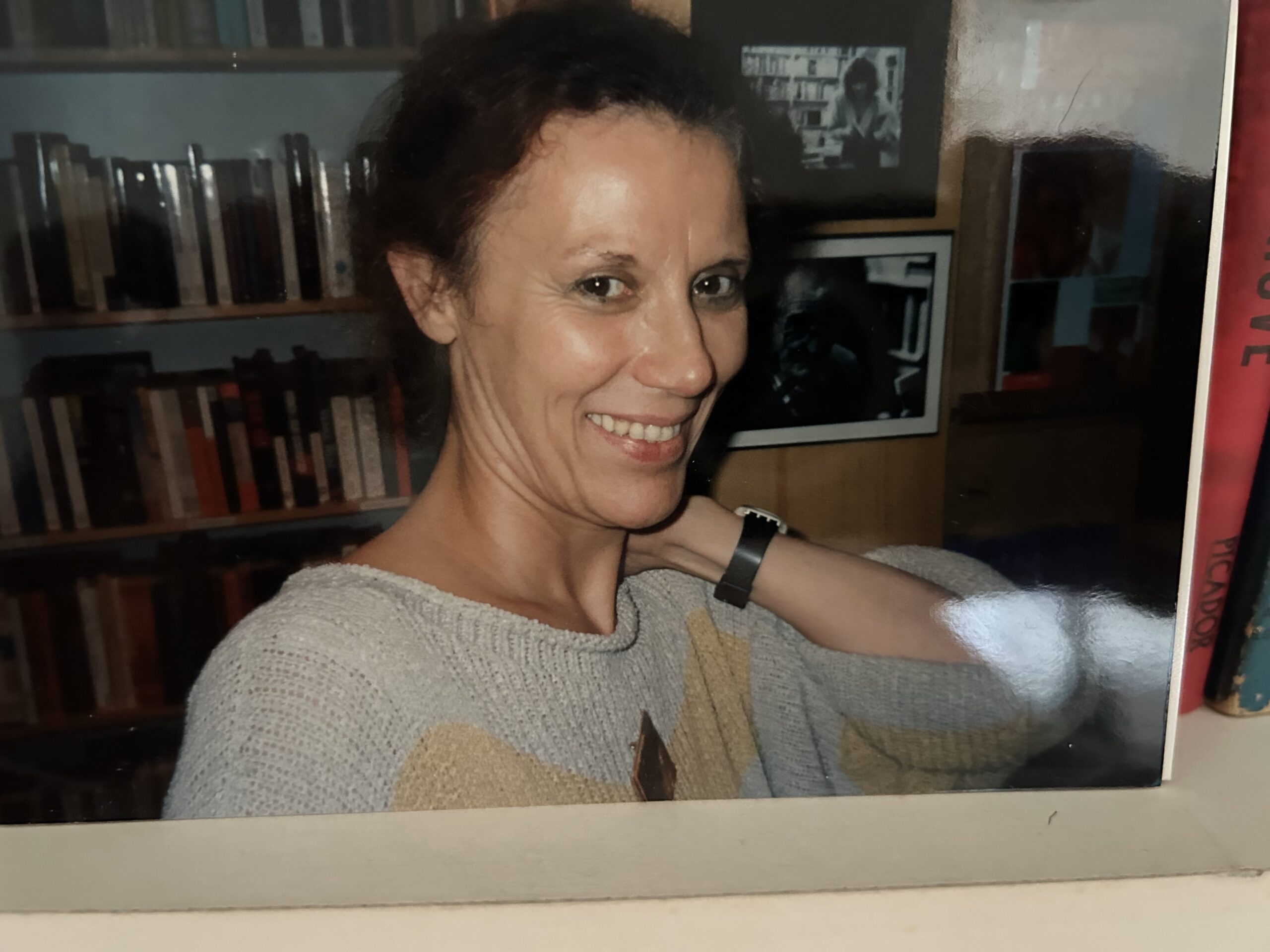“A stroll from rue de l’Odéon, Les Deux Magots, or the Luxembourg Gardens, the hanging sign reads ‘Village Voice: Anglo-American Bookshop.’ The narrow door and window frames are painted Greek island blue… Lingering a while in front of the window display, you’ll want to dive inside, into an ocean of story.”
— Hazel Rowley, Bookforum
Village Voices
Over the next three decades, this blue-shuttered shop became one of the most famous English-language bookstores in Paris—a vibrant hub for artists and writers […] These included Susan Sontag, Margaret Atwood, Don DeLillo, Allen Ginsberg, Toni Morrison, Michael Ondaatje, Jim Harrison, Barry Gifford, Adrienne Rich, David Sedaris, Amy Tan, Edmund White, Art Spiegelman, and Stephen Spender, among many others, all drawn to Odile’s tiny bookstore on rue Princesse. This book and the archive it is drawn from embody an enduring conversation across time, as well as the memoir of one woman and her beloved bookshop.
Foreword by Pulitzer Prize Poet Charles Kenneth Williams
Odile Hellier
AUTHOR OF VILLAGE VOICES
I was born in the South of France during World War II and raised in Lorraine, and Brittany. I am the founder and owner of the Village Voice Book-shop a hub of Anglophone literary life and culture that operated in the heart of Saint-Germain-des-Prés in Paris for over thirty years.
Village Voices is a personal memoir of the Village Voice Bookshop in Paris that for thirty years (1982-2012) invited American and Anglophone writers from all over the world to present their works, all the while engaging in stimulating exchanges with their English-speaking audience.
I chose its name as a nod to the maverick New York weekly magazine The Village Voice that had kept me abreast of the political, social and creative effervescence of the 1970’s when I lived in Washington D.C.
My Story
Tucked away in the narrow rue Princesse in the heart of Saint-Germain des Prés, in the 1980’s the Village Voice became the pulse of Paris’s expatriate artistic community. Turning their back on President Reagan’s conservatism, droves of young aspiring writers arrived in the “city of light” keeping up the great tradition of American writers initially seeking artistic freedom in Paris–The Lost Generation of the 1920’s and 30’s with its legendary authors and female literary salons, and the second wave of postwar generation of Black writers admirably portraying the inherent injustices of their segregated society.
Still, a Third Wave of freshly striving talents was to transform the Village Voice Bookshop into a “home away from home”, making it a beehive of literary activity that attracted some of the most innovative American authors of the 1980’s and 90’s, joined at the turn of the century by Anglophone writers from all over the world. For thirty years, these speakers captured an audience for whom literature was not just a pastime but “the very stuff of life”.
My memoir Village Voices grew from a personal selection of such voices that bring to life this singular history of a heady time and a particular place.
When I opened the Village Voice bookshop I was forty years old, and the immediate question I was often asked was: What made you become a bookseller?
In fact, nothing had prepared me to sell books as a profession. I had started my professional life as a high-school teacher of the Russian language; it was the 1968 invasion of Czechoslovakia by Soviet troops that eventually led me to resign my post. After training to become a translator for International Organizations, I soon landed a job in Washington DC where Algeria had just opened its Sonatrach office in view of developing economic and industrial relations with the US.
Ten years later, I returned to France, soon to realize that what I once considered to be an interesting chosen professional career was now viewed in my own country as a sign of instability. At the same time, I became aware that what I missed most from my years in the US was the intensity and diversity of its cultural life in which bookstores played an important part. They were not just a display of books, but rather a gathering place where authors and audience alike brought literature to life through engaging readings and stimulating discussions of artistic, social and political consequence.
Slowly but surely, I began to fancy working in a world of books.
What I did not realize in 1982 when I opened the doors of the Village Voice Bookshop was that a traumatic war time event in France had played a pivotal role in my seemingly natural decision to become a bookseller.

